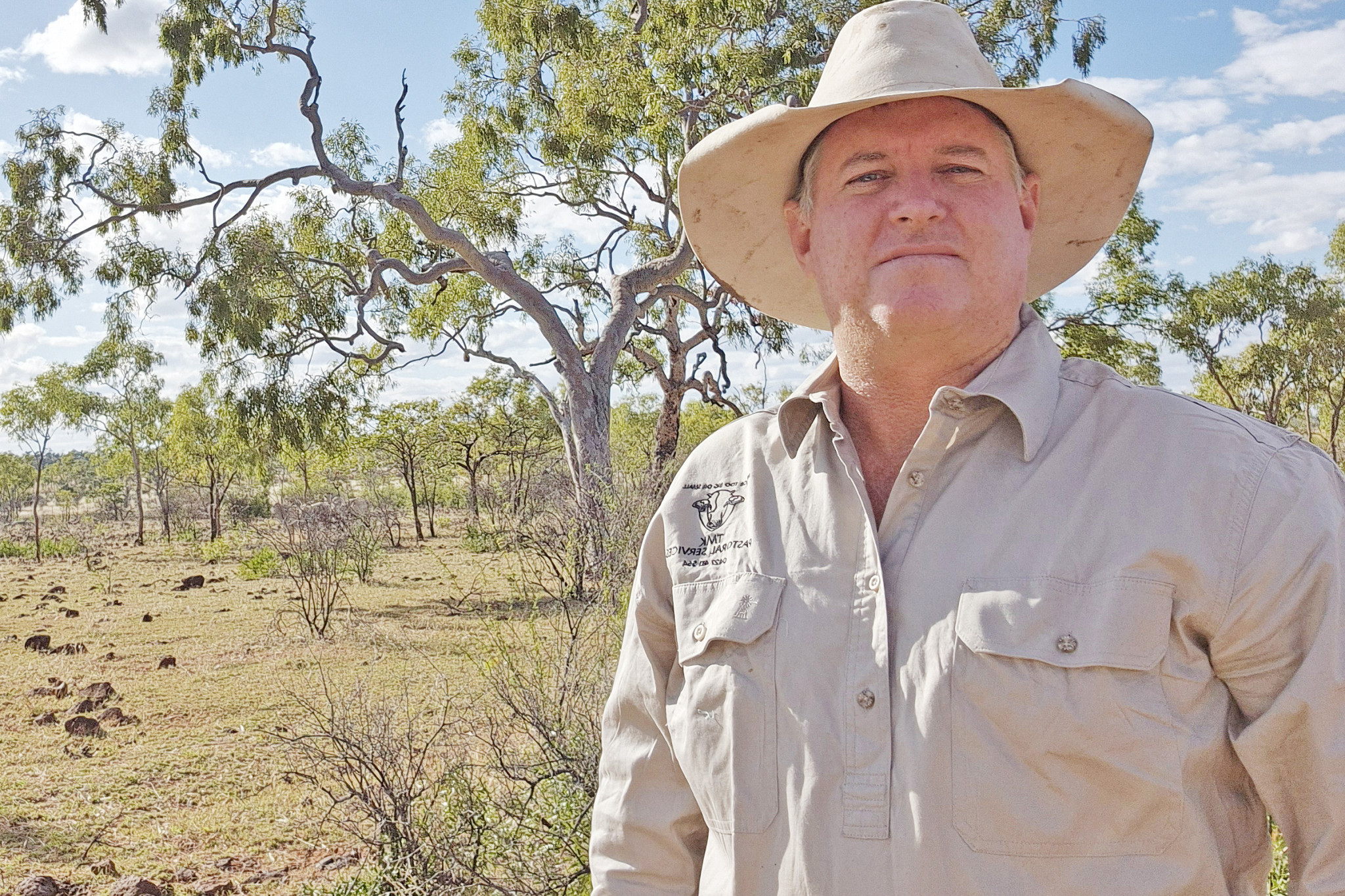General News
4 September, 2024
New AgForce president has big plans for the North West
The Queensland ag body will be led by a Flinders Shire councillor.

Shane McCarthy says he is uncertain whether it is a lack of political will, an over-abundance of bureaucracy or a dearth of frontline experience that hampers North West agriculture from reaching its true potential.
But the incoming AgForce president says he plans to use his two-year tenure to continue selling the story of a North West cropping industry in the halls of powers. The fifth-generation sheep and cattle producer from Hughenden will take the reigns of Queensland’s biggest farm lobby group in November, after being elected uncontested last week.
Mr McCarthy, who is also a Flinders Shire councillor, said he had watched countless politicians fly into the region to survey the land and hear the raft of projects under proposal – then fail to deliver anything on their return to Brisbane or Canberra.
He said private investors were keen to build and expand businesses in the region, but they required government to deliver the underpinning infrastructure to enable farmers to grow the crop and transport it to market.
“Northern Australia is the last underdeveloped part of Australia – there is a lot of potential here, but we need access to some water and to build the roads better,” he told North West Weekly.
“We just had the NFF (National Farmers Federation) president up here a few weeks ago and he was pleasantly surprised with the amount of cropping that is going on across the north – but my God, it could be a lot bigger if we just had better water infrastructure.”
“We need better roads, rail and we need a government that just decides we need to store water so we can build infrastructure to hold water back in the wet season so we can use it during the dry seasons.
“We need investment because it will pay for itself ten times over in the long term.”
The tensions between economic development and conservation are lucid in the North West – to take a few examples – the Powerlink CopperString project last week reported a cost increase to realign sections of the transmission line to meet cultural heritage protection requirements, an environmental review of the Gulf water plan is stalling irrigation allocations along the Flinders River and a lack of existing reliable power supply is halting construction of a cotton gin at Julia Creek.
Despite this, there is a slew of trailblazing work being undertaken in pockets of the region that is providing a snapshot of the possibilities for local agriculture – 2500ha of sorghum was harvested at Burketown for the first time in 2022 and there has been small scale but successful cotton crops at Julia Creek and Richmond as growers learn the best methods to bolster output in tropical climates.
The Mount Isa to Townsville Economic Zone (MITEZ) released a report that estimated cotton production in the North West could see a ten-fold increase to more than 200,000 bales per year if there was sufficient water infrastructure in place.
Local government is also ambitious in its plans, with a multitude of feasibility studies and lobbying efforts for ambitious economic and job creating projects across the region, such as a meat work, inland port, irrigated farmlands, cotton gin and transport hubs.
Mr McCarthy said northern agriculture needed to focus on better informing city audiences about the vital role the sector plays in the national economy.
“It’s that age old problem that the politicians are a long way from north of Julia Creek or north of Cloncurry so they aren’t confronted with the issues every day in the same way we are,” Mr McCarthy said.
“But, to be fair, a lot of the politicians do come up here and they see what is happening - I am just not sure there is the willingness at the bureaucratic level to get things moving.
“The investment is there - proponents want to do it and the politicians can see the potential, but too often all these ideas and projects are just getting mired down by the bureaucracy involved.”
Mr McCarthy said AgForce had identified increased funding for biosecurity as its top state and federal election agenda items alongside continuing to lobby for legislation to end underground carbon capture projects in the Great Artesian Basin at federal and state and territory levels.